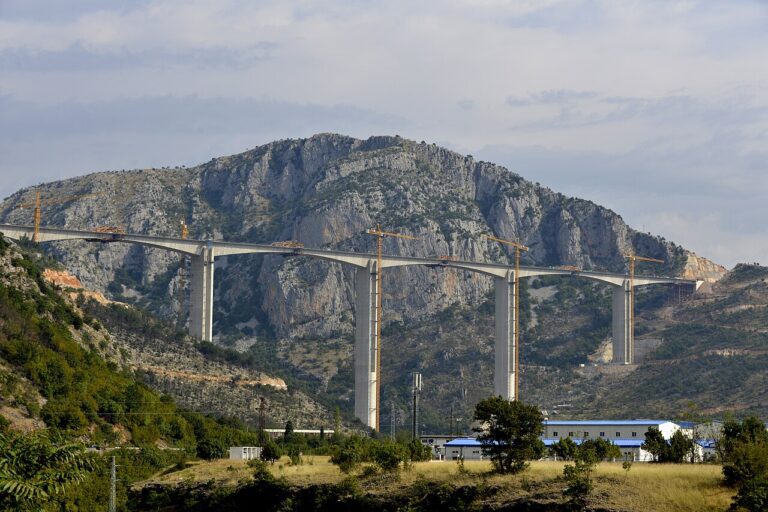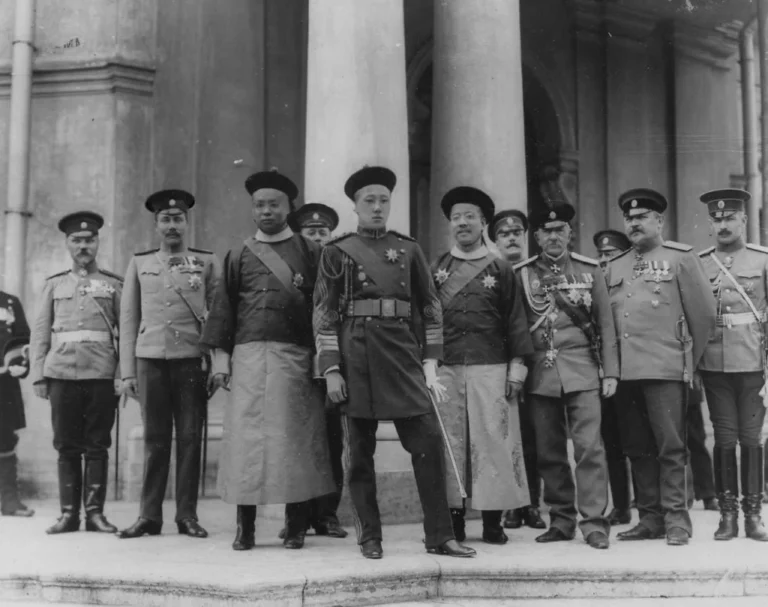
Following Donald Trump’s victory in the US presidential election, the ruling Georgian Dream party anticipated improved bilateral relations with Washington. However, statements from Republican Party representatives and the appointment of China hawks to key positions in the incoming US administration suggest that Georgia’s current government – a staunch advocate of deepening ties with China – may face several challenges.
Georgia’s ruling party welcomed Trump’s election with a mix of hope and strategic calculation. On November 6, Prime Minister Irakli Kobakhidze took to X (formerly Twitter) to congratulate the newly elected president, expressing confidence in Trump’s ability to foster global and regional peace. Kobakhidze also hinted at a potential review of US-Georgia relations – an intriguing prospect for a country that has long relied on US support to counter Russian influence in the region but has increasingly encountered setbacks such as sanctions, development aid cuts, and a decline in meaningful cooperation.
For Tbilisi, Trump’s victory seems to present an opportunity to recalibrate its partnership with Washington, albeit in the midst of an unpredictable international landscape. Whether this optimism will translate into tangible benefits for Georgia – or merely a shift in rhetoric –remains to be seen, as the ruling party’s hopeful outlook faces significant challenges, particularly when it comes to the composition of Trump’s cabinet.
A Comprehensive Review of US-Georgia Relations
The Georgian government’s increasingly anti-Western foreign policy stance has strained its relationship with Washington. This tension came to a head on May 23, when the US Secretary of State Antony Blinken announced a pause on a $95 million assistance package for Georgia and initiated a “comprehensive review of bilateral cooperation.” The situation remains unresolved, with the spokesperson for the US State Department Matthew Miller confirming that the review is ongoing, and “other policy actions” may follow as needed.
Amidst these developments, the Georgian Dream party continued to hope that Trump’s presidency may offer an opportunity to repair and even improve bilateral relations. However, a closer look at the composition of Trump’s cabinet casts serious doubt on the plausibility of such optimism.
One notable appointment is Mike Waltz, Trump’s nominee for National Security Adviser. Waltz, who is a vocal critic of Georgia’s ruling elite, supported sanctions against Bidzina Ivanishvili, the founder of the Georgian Dream party and a billionaire widely accused of wielding undue influence over the government. In 2020, Waltz co-authored a report calling Ivanishvili “a close ally of Putin” who destabilized Georgia to further Moscow’s interests.
The Georgian Dream’s predicament is further compounded by strong bipartisan criticism in Washington. Prominent Republican figures have called for harsher measures against Georgia’s current government. On November 3, US Congressman Joe Wilson, chair of the Helsinki Committee, called for sanctions against Ivanishvili, describing him as “Russia’s puppet” who steered Georgia toward authoritarianism. Wilson’s introduction of the MEGOBARI Act, which stands for Mobilizing and Enhancing Georgia’s Options for Building Accountability, Resilience, and Independence, underscores the depth of US frustration. The bill calls for sanctions against individuals supporting Russian-style legislation in Georgia and condemns the government’s hostility toward democracy-promoting organizations while strengthening ties with authoritarian regimes like Russia and China.
Recent high-level visits have reaffirmed this stance on the side of the US. During an August trip to Georgia, Senator Jeanne Shaheen and Congressman Michael Turner emphasized that US policy toward Georgia remains firmly committed to Euro-Atlantic integration. When asked whether a Trump victory could alter this trajectory, Turner dismissed the idea, stating that US policy would remain consistent regardless of the administration in power.
Under these circumstances, the Georgian Dream’s expectation that Trump’s presidency might soften US policy appears overly optimistic, if not entirely misguided. The comprehensive review of US-Georgia relations, combined with bipartisan calls for accountability, suggests that a significant policy shift under Trump is highly unlikely. Instead, the ruling party may find itself under even greater scrutiny as Washington continues to prioritize democratic principles over political expediency.
Georgia’s China Strategy under Trump
As Georgia deepens its ties with China, the appointment of China hawks to crucial cabinet positions under Trump suggests that this strategy could soon backfire for the Georgian Dream party. Strengthening relations with Beijing may prove increasingly problematic under Trump’s leadership, leaving Tbilisi caught between its aspirations and the reality of US foreign policy priorities.
Since establishing the Sino-Georgian Strategic Partnership in 2023, Georgia has actively pursued closer cooperation with China, emphasizing economic, diplomatic, and educational initiatives. This shift presents a direct challenge to Georgia’s EU- and NATO-oriented foreign policy, with China increasingly seen as an alternative to traditional Western partners. Kobakhidze has openly contrasted Georgia’s partnership with the US to its growing ties with China, arguing that Beijing has demonstrated a stronger commitment. Citing developments such as visa-free travel, a free trade agreement, and direct flights, Kobakhidze suggested that the US no longer prioritizes deepening its relationship with Georgia in a similar fashion. Given this context, a pressing question arises: Can the Georgian government successfully deepen its cooperation with China while mending fences with the US under Trump?
Early signals from Trump’s cabinet suggest that this will be an uphill battle. Many of Trump’s nominees for key positions – including Secretary of State, National Security Adviser, and Commerce Secretary – are known for their hardline stances on China. Marco Rubio, Trump’s nominee for Secretary of State, is a particularly striking choice. If confirmed, Rubio would become the first Secretary of State in US history to have been sanctioned by Beijing. Rubio has consistently framed China’s growing global influence as a direct threat to the US-led international order, arguing that Russia’s war in Ukraine is part of a broader strategy by the Moscow-Beijing axis to undermine the West.
Georgia’s deepening ties with China – highlighted by China’s potential involvement in the Anaklia Deep Sea Port project – are unlikely to sit well with a Trump administration. The Anaklia port, which received US backing during Trump’s first term, was seen as a critical project to counter Russian and Chinese influence in the region. Former Secretary of State Mike Pompeo even described the project as essential to help prevent Georgia from succumbing to Russian or Chinese economic influence.
Yet Georgia’s handling of Anaklia has only exacerbated tensions with the West. In 2020, a group of Republican congressmen, including Adam Kinzinger, warned then-Prime Minister Giorgi Gakharia that the Georgian government’s political targeting of the Anaklia Development Consortium – backed by US companies – was undermining American involvement. The congressmen further emphasized that this obstruction would ultimately bolster Putin’s regional influence. Their warnings went unheeded, and the project ultimately excluded US partners.
Between Beijing and Washington
Anaklia is just one example of China’s growing footprint in Georgia. Chinese companies are heavily involved in numerous infrastructure projects, and the Georgian government has shown a clear willingness to expand Beijing’s influence in its economy. While this might bring short-term economic benefits, it risks alienating Georgia from its Western allies at a critical moment.
Trade wars and escalating tensions with China marked Trump’s previous presidency. If his new administration follows a similar trajectory, Georgia’s growing reliance on China could significantly strain its relations with the US and further isolate it from the Euro-Atlantic community. For the Georgian Dream government, walking the tightrope between Beijing and Washington may prove to be a precarious balancing act, with consequences far beyond what Tbilisi currently anticipates.
Written by
Aksana Akhmedova
Aksana Akhmedova is a researcher at Civic IDEA, Georgia, focusing on foreign influence, with a keen interest in Middle Eastern politics and international security. She holds a BA in international relations from Ivane Javakhishvili Tbilisi State University, having also studied at Çukurova University in Turkey through the Erasmus+ program.


